Search Results
Showing results 141 to 160 of 336

Bubble Suspension
Source Institutions
In this activity, learners observe as soap bubbles float on a cushion of carbon dioxide gas. Learners blow bubbles into an aquarium filled with a slab of dry ice.
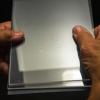
On the Fringe (formerly Bridge Light)
Source Institutions
In this activity, learners trap a thin layer of air between two pieces of Plexiglas to produce rainbow-colored interference patterns.

Self-Portrait Silhouettes: Activity 2
Source Institutions
In this activity, learners make a photographic image—without a camera!
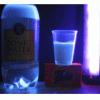
Glow Up
Source Institutions
In this activity, learners explore chemiluminescence and fluorescence. Learners examine 3 different solutions in regular light, in the dark with added bleach solution, and under a black light.
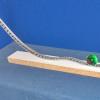
Over the Hill
Source Institutions
In this physics activity, learners construct a small-scale version of a classic carnival game.

Corner Reflector
Source Institutions
In this optics/mathematics activity, learners use two hinged mirrors to create a kaleidoscope that shows multiple images of an object.
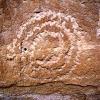
Make Your Own Petroglyph
Source Institutions
In ancient Chaco Canyon, the people used a "sun dagger" petroglyph to mark the passing of seasons.
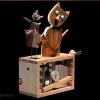
Cardboard Automata
Source Institutions
Cardboard Automata are a playful way to explore simple machine elements while creating a mechanical sculpture.

Bernoulli Levitator
Source Institutions
Demonstrate the Bernoulli Principle using simple materials on a small or large scale.
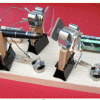
Laser Lissajous: Binder Clip Version
Source Institutions
In this activity, learners use a laser pointer and two small rotating mirrors to create a variety of fascinating patterns, which can be easily and dramatically projected on a wall or screen.
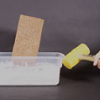
Earthquake Science: Soil Liquefaction
Source Institutions
This activity demonstrates liquefaction, the process by which some soils lose their solidity during an earthquake.

"Baseketball": A Physicist Party Trick
Source Institutions
This trick from Exploratorium physicist Paul Doherty lets you add together the bounces of two balls and send one ball flying.
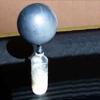
Yeast-Air Balloons
Source Institutions
In this activity, learners make a yeast-air balloon to get a better idea of what yeast can do. Learners discover that the purpose of leaveners like yeast is to produce the gas that makes bread rise.

Scratch Film
Source Institutions
In this activity, learners manipulate film to create homemade movies. Scratch Film, also known as Direct Animation, is the process of drawing and scratching designs directly onto film.

Thread the Needle: Using Two Eyes Gives You Depth Perception
Source Institutions
Closing one eye eliminates one of the clues that your brain uses to judge depth. Trying to perform a simple task with one eye closed demonstrates how much you rely on your depth perception.
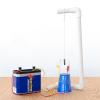
Curie Point
Source Institutions
In this activity best suited as a demonstration, learners observe that when a piece of iron gets too hot, it loses its ability to be magnetized.
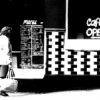
Cafe Wall Illusion
Source Institutions
In this fun and interactive online exhibit, the straight lines of a tile wall appear to curve. The learner moves the rows of tiles and changes the color of the grout to achieve the intriguing effect.
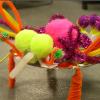
Jitterbug
Source Institutions
This activity explores the concept of center of gravity by having learners build a Jitterbug--a motorized toy that seems to dance--using a recycled CD and a DC motor.
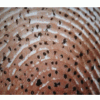
Sweat Spot
Source Institutions
In this activity, learners use a chemical reaction to visualize where moisture forms on the body.

Magnetic Suction
Source Institutions
In this activity about electricity and magnetism, learners discover how a doorbell works. A coil of wire with current flowing through it forms an electromagnet that acts similar to a bar magnet.
